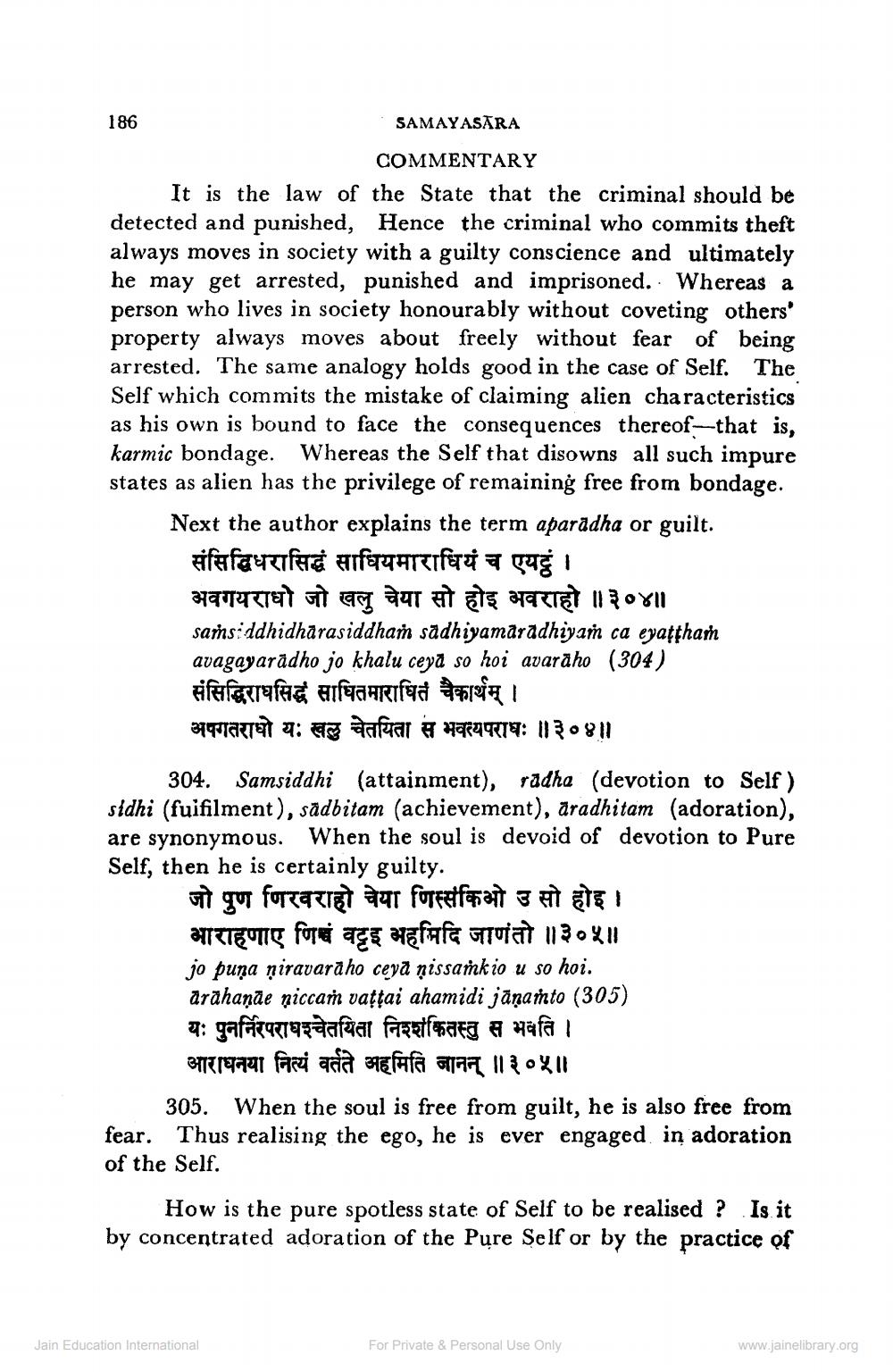________________
186
SAMAYASĀRA
COMMENTARY It is the law of the State that the criminal should be detected and punished, Hence the criminal who commits theft always moves in society with a guilty conscience and ultimately he may get arrested, punished and imprisoned. Whereas a person who lives in society honourably without coveting others property always moves about freely without fear of being arrested. The same analogy holds good in the case of Self. The Self which commits the mistake of claiming alien characteristics as his own is bound to face the consequences thereof-that is, karmic bondage. Whereas the Self that disowns all such impure states as alien has the privilege of remaining free from bondage.
Next the author explains the term aparadha or guilt.
संसिद्धिधरासिद्ध साधियमाराधियं च एयटुं। अवगयराधो जो खलु चेया सो होइ अवराहो ॥ ३०४॥ samsiddhidhārasiddham sadhiyamaradhiyam ca eyatham avagayarādho jo khalu ceya so hoi avarāho (304) संसिद्धिराधसिद्ध साधितमाराधितं चैकार्थम् । अपगतराधो यः खलु चेतयिता स भवत्यपराधः ॥३०४॥
304. Samsiddhi (attainment), radhe (devotion to Self) sidhi (fuifilment), sadbitam (achievement), äradhitam (adoration), are synonymous. When the soul is devoid of devotion to Pure Self, then he is certainly guilty.
जो पुण णिरवराहो चेया णिसकिओ उ सो होइ । आराहणाए णिचं वट्टइ अहमिदि जाणतो ॥३०॥ jo puna ņiravará ho ceyā ņissamkio u so hoi. arahaņāe niccaṁ vastai ahamidi jānamto (305) यः पुनर्निरपराधश्चेतयिता निश्शंकितस्तु स भवति । enteraani farci ana hefufa 21a17 11 0 X 11
305. When the soul is free from guilt, he is also free from fear. Thus realising the ego, he is ever engaged in adoration of the Self.
How is the pure spotless state of Self to be realised ? Is it by concentrated adoration of the Pure Self or by the practice of
Jain Education International
For Private & Personal Use Only
www.jainelibrary.org




